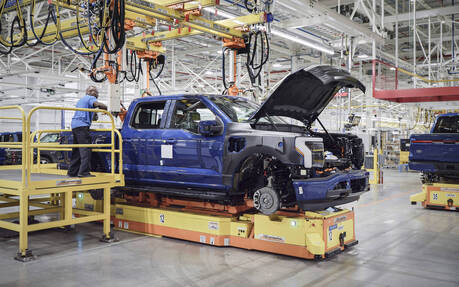Ford Trademarks “F-200,” But What For?
Following rumours of a street performance truck that could be called F-150 Lobo, another possible addition to Ford’s F-Series lineup is making headlines this week. The company has apparently filed to trademark the name F-200, but what for?
A larger F-150, similar to the late Nissan TITAN and TITAN XD? Not likely. A new Super Duty pickup? Even less. A name change for the next-generation F-150, just like when the F-100 was replaced in 1975? That would make sense but still come as a huge surprise.
- Also: Ford F-150 May Soon Get Street Performance Variant Called Lobo
- Also: Ford F-150 Lightning and Toyota Tundra Go Black for 2024
According to various sources, the F-200 will probably become the new electric pickup that’s set to join the F-150 Lightning, as Ford CEO Jim Farley hinted at a few times. It’s also known under the codename “T3.”

This future model, which won’t be an electric Ranger or Maverick, is slated to enter production at the so-called “Blue Oval City” in Stanton, Tennessee somewhere in 2025, alongside the next-gen F-150 Lightning.
Farley has talked about a different kind of truck using a new design approach, perfectly suited for the digital age (with constant updates and improvements) and offering more advanced vehicle-to-load capability. How big will it be and where will it fit in Ford’s portfolio? We’ll find out during the reveal that’s expected to take place in 2024.
Earlier this summer, Ford slashed F-150 Lightning prices and confirmed plans to triple production in 2023 versus the previous year. As for the conventionally powered F-150, a mid-cycle refresh is coming for 2024, and we’ll see it at the North American International Auto Show in Detroit next week. The Car Guide will be on hand, of course.

In an interview with Automotive News back in May, Ford said it was aiming to limit the number of orderable combinations on the F-150 “by a magnitude that we've never seen before” in order to improve quality and reduce production costs.
Notably, upcoming F-150 trucks will feature about 2,400 fewer parts than their predecessors. Others components will be modified to some extent in order to further minimize complexity.
